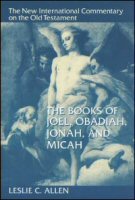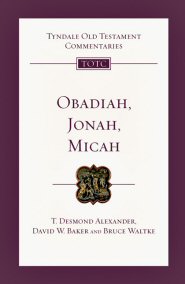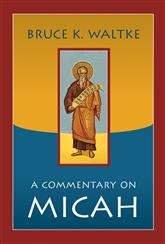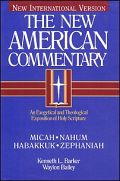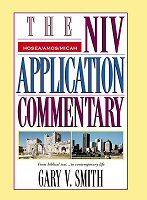Best Resources on Micah
Micah has been called a “miniature Isaiah” because of its similarities to that book. Both prophets spoke to the same audience from the same city during roughly the same historical period: Jerusalem in the eighth century BC. During Micah’s ministry, the northern kingdom of Israel fell to the Assyrian Empire (722 BC), and the southern kingdom of Judah came close to the same fate in 701 BC (see 2 Kgs 17–20). According to Micah, who prophesied to both kingdoms, the reason for these attacks was the abuse of prosperity by God’s people. He gives both warnings and oracles of hope—looking forward to a day of judgment leading to peace (Mic 4:2–5).
—Faithlife Study Bible, Lexham Press
Everything You Need to Study & Teach Micah
Expository Preaching Kits are curated resources all focused on helping you teach a single book of the Bible—keeping you prepared without weighing you down.
Best Commentaries on Micah
Leslie C. Allen, New International Commentary on the Old Testament (NICOT), Eerdmans, 1976, 427 pp.
The eloquent and uncompromising calls for social righteousness by some of the Minor Prophets are familiar to many, yet the writings themselves are probably the least studied and least-known texts of the Old Testament. Those who are familiar with these books are also aware of the historical and literary problems that plague their study. Drawing on insights from various perspectives—theological, historical, and literary—Leslie Allen’s commentary on Joel, Obadiah, Jonah, and Micah carefully and imaginatively reconstructs the stage on which the message of these four books was conveyed to their Hebrew hearers and shows what relevance, in turn, they hold for contemporary Christians.
- Level: Intermediate
- Type: Expository
Bruce K. Waltke, David W. Baker, and T. Desmond Alexander, Tyndale Old Testament Commentaries (TOTC), InterVarsity Press, 1988, 166 pp.
Obadiah’s oracle against Edom. Jonah’s mission to the city of Nineveh. Micah’s message to Samaria and Jerusalem. The texts of these minor but important prophets receive a fresh and penetrating analysis in this introduction and commentary. The authors consider each book’s historical setting, composition, structure, and authorship, as well as important themes and issues. Each book is then expounded in the concise and informative style that has become the hallmark of the Tyndale series.
- Level: Basic
- Type: Devotional
Bruce K. Waltke, Eerdmans, 2007, 508 pp.
Waltke’s Commentary on Micah quickly distinguishes itself from other commentaries on this book by displaying an unprecedented exegetical thoroughness, an expert understanding of historical context, and a keen interest in illuminating the contribution of Micah to Christian theology. Tackling hard questions about date and authorship, Waltke contends that Micah himself wrote and edited the 19 sermons comprising the book. Waltke’s clear analytical outline leads readers through the three cycles of Micah, each beginning with an oracle of doom and ending with an oracle of hope, decisively showing that hope wins over doom.
- Level: Advanced
- Type: Technical
Kenneth L. Barker and Waylon Bailey, New American Commentary (NAC), B&H, 1999, 320 pp.
There are all kinds of evil that permeate this world. During Old Testament times, God sent his prophets to speak against this evil. These books also show us how God deals with wickedness but also makes glad the hearts who trust in him. The goal of this commentary is for the reader to see the parts (each verse) as well as the whole (the passage).
- Level: Intermediate
- Type: Expository
Gary V. Smith, NIV Application Commentary (NIVAC), Zondervan, 2001, 608 pp.
Scratch beneath the surface of today’s culture and you’ll find we’re not so different from ancient Israel. True, our sophistication, mobility, and technology eclipse anything the Israelites could have imagined. Our worship is far different, to say nothing of our language and customs. Yet if the prophets Hosea, Amos, and Micah were to visit us today, we might be shocked to see how little their messages would differ from the ones they delivered 2,800 years ago. Revealing the links between Israel in the eighth century BC and our modern world, Gary V. Smith shows how the prophetic writings of Hosea, Amos, and Micah speak to us today with relevance and conviction.
- Level: Intermediate
- Type: Devotional
Best Books on Micah
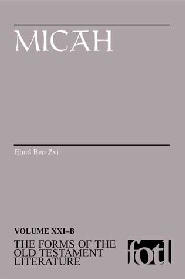
Forms of the Old Testament Literature Series: Micah (FOTL)
Ehud Ben Zvi explores the prophetic book of Micah as a written document that presents itself as YHWH’s word. He examines how Micah was read by its ancient audience and explores the social setting upon which the biblical book stands. Emphasis is placed on the construction of the past, on the images of the future, and on the relevance of both of these to the current community of readers for whom the book was intended. The commentary not only deals extensively with Micah's message but with the social function of this and other prophetic books in ancient Israel. Ben Zvi’s various lines of investigation lead to a deeper understanding of Micah and its enduring message.
Learn more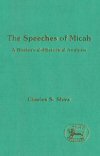
Speeches of Micah: A Rhetorical-Historical Analysis
In this important book, Shaw deploys a rigorous and systematic rhetorical analysis in the service of a reconstruction of the historical setting of each of the discourses in Micah. Unlike Muilenburg's "rhetorical criticism," this approach focuses on the persuasiveness of the discourses, the means by which the author achieves his goal. Among Shaw's tools is the concept of the rhetorical situation. It involves not only the question of the identity of the narratees but also objective factors like events, conditions, and attitudes to which the discourse responds and subjective factors like the speaker's own view of the situation. For each discourse the author analyzes its goals and strategy, determining the structure of the speeches, the function of each part in the persuasiveness of the speech, the kinds of proof, and the style used to achieve the author's goals.
Learn more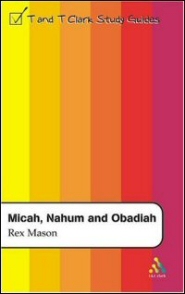
T&T Clark Study Guides: Micah, Nahum and Obadiah
Mason here provides a valuable basic orientation to the modern reading of these short and often difficult minor prophets. By carefully surveying and evaluating the historical-critical options that have been proposed during the last century, he outlines the message of these books within a postexilic, canonical context. Although scholars hold diverging assumptions about the authorship of Micah, Mason asserts that the book must be read as a coherent whole. Mason views the work as a postexilic tract that reinterprets the prophet’s message in the light of the situation after the exile. For Nahum and Obadiah, whose apparent theology of hate for foreigners has limited their interpretive appeal, the argument that the books were designed to function as part the Book of the Twelve—the singular book of prophets from Amos through Jonah referred to as the “Twelve Prophets” in the Wisdom of Ben Sirach—must be taken seriously.
Learn more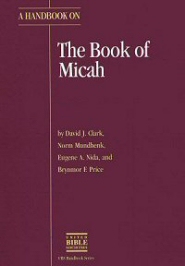
A Handbook on the Book of Micah
What if you were responsible for translating God's Word into a language that never had a Bible before? Can you imagine the burden you would feel to do a good job? God takes his Word pretty seriously, and you would certainly do everything in your power to make sure that you were not putting words into God's mouth but that you were providing a text that clearly communicated God's Word as closely to the original as possible. This challenge to understand the heart of the original Scriptures to put the original text into a new language was the impetus for the United Bible Societies to create handbooks for Bible translators working on this very thing. The United Bible Societies' Handbook Series is a comprehensive verse-by-verse guide to understanding exactly what is being communicated by the author in the original Scriptures.
Learn more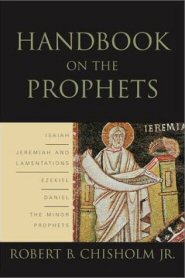
Handbook on the Prophets
The prophetic books of the Bible contain some of the most difficult passages in the entire Old Testament and can prove especially confusing for those new to this corpus. Handbook on the Prophets offers a thorough and insightful introduction for the beginning student of the Old Testament prophetic literature. Robert Chisholm guides students through the important and often complex writings of Isaiah, Jeremiah and Lamentations, Ezekiel, Daniel, and the Minor Prophets.
Learn moreBest Courses on Micah
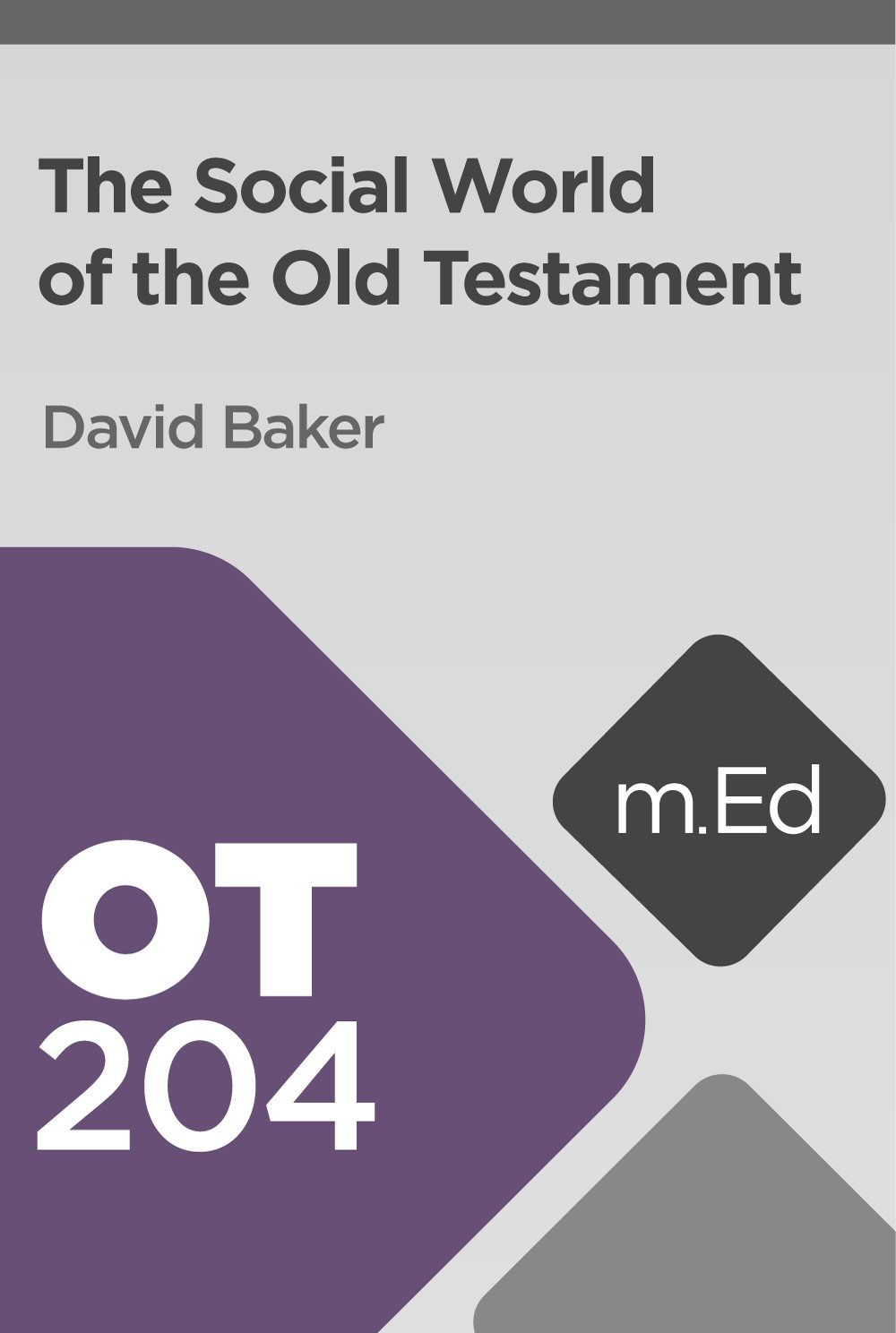
Mobile Ed: OT204 Social World of the Old Testament (4 hour course)
In an age of international travel and migration, we’re familiar with people who look, sound, eat, and believe differently than we do. To become friends, it’s helpful to understand where they come from and how they do things differently, or the same, as we do. In the same way it is necessary to understand someone who comes from a different place than we do, how much more necessary is it to understand someone who is from not only a different geographical place but also a different time than we are? The Old Testament starts at the beginning of the world. This course will undertake the task of crossing the bridges of geography, climate, time, and a landscape unknown to us: ancient Israel. Throughout the course, David W. Baker will address aspects of life from our own culture and time, as well as family structure and societal systems from ancient Israelite life. As we Learn more about the social world of the Old Testament, we will be struck not only by our differences but also by our common humanity and that we share the same dreams, hopes, and fears as they did.
Learn more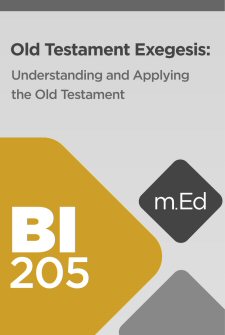
Mobile Ed: BI205 Old Testament Exegesis: Understanding and Applying the Old Testament (15 hour course)
Embark on a journey of OT Hebrew exegesis with Jason DeRouchie. The books of the OT were the only Scriptures Jesus had. It was books like Genesis, Deuteronomy, Isaiah, and Psalms that shaped Jesus’ upbringing and guided his life in ministry as the Jewish Messiah. It was these Scriptures Jesus identified as God’s Word and that he considered to be authoritative; it was these Scriptures he believed called people to know and believe in God and guarded them against doctrinal error and hell. This course will give you the tools you need to access meaning in the OT, then apply it to your life. It will help you to grow in reading God’s living Word for depth and not just distance.
Learn more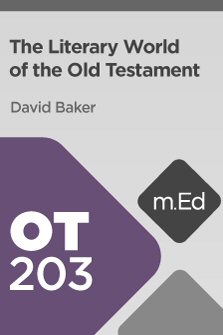
Mobile Ed: OT203 Literary World of the Old Testament (6 hour course)
Join David W. Baker on a whirlwind tour to explore the Old Testament from many different angles and how it relates to ancient Near Eastern literature. From creation accounts and stories of destruction to Wisdom Literature, discover different biblical literary genres that have parallels in ancient Near Eastern literature. Explore extrabiblical historical texts that mention key events and figures from the Old Testament. Understand how Israel fits into and is impacted by its ancient Near Eastern environment but also how it is separate and unique, mainly on a theological level, but also by its distinct worldview.
Learn more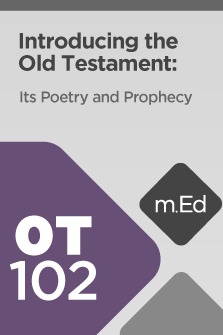
Mobile Ed: OT102 Introducing the Old Testament: Its Poetry and Prophecy (6 hour course)
This course provides a practical foundation for reading the poetry and prophecy of the Old Testament. Dr. David Baker begins by discussing poetic writing in general, then the elements specific to both Hebrew and English poetry. Applying these elements to the text, he examines the content, structure, and themes of the Psalms, Proverbs, Lamentations, Job, Ecclesiastes, and the Song of Songs. Dr. Baker then turns to the prophetic books, providing historical background, theological motifs, and the structure and content of specific books. He shows that these ancient messages remain relevant in modern life.
Learn more